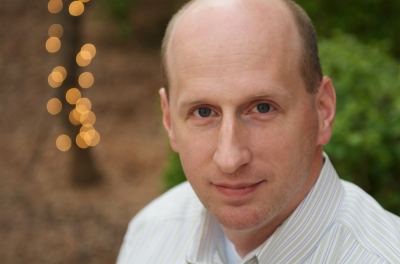Our Military Must Do More to Teach About the True Nature of the Enemy

Late last week The New York Times ran an essay by a Marine infantry officer, Timothy Kudo, based on Mr. Kudo's experience giving orders to kill men in Afghanistan. He didn't pull the trigger, but he gave the orders — often viewing the action on grainy screens. His essay is thoughtful, though it doesn't square with either my own reflections or the reflections of others I know that made similar decisions in similar circumstances.
I salute him for his service, and I'm not here to judge how he processed the kill orders he gave.
There is, however, one segment of his piece that I think demonstrates that anguish and self-doubt are at least a partial product of our military's failure to educate and motivate. We shy from describing the enemy's true moral nature and ascribe responsibility to our own soldiers for innocent deaths that are truly the enemy's fault. Read these two paragraphs:
The more I thought about the enemy, the harder it was to view them as evil or subhuman. But killing requires a motivation, so the concept of self-defense becomes the defining principle of target attractiveness. If someone is shooting at me, I have a right to fire back. But this is a legal justification, not a moral one. The comic Louis C.K. brilliantly pointed out this absurdity: "Maybe if you pick up a gun and go to another country and you get shot, it's not that weird. Maybe if you get shot by the dude you were just shooting at, it's a tiny bit your fault."
My worst fear before deploying was what, in training, we called "good shoot, bad result." But there is no way in the chaos and uncertainty of war to make the right decision all the time. On one occasion, the Taliban had been shooting at us and we thought two men approaching in the distance were armed and intended to kill us. We warned them off, but it did no good. They continued to approach, and so my Marines fired. What possible reason could two men have to approach a squad of armed Marines in a firefight? When it was over and the two men lay dead we saw that they were unarmed, just two men trying to go home, who never made it.
Let's break this down briefly. The war was not conducted in a vacuum of young men merely following orders, with the Taliban simply defending their turf against a Western invader. The vast majority of civilian casualties in Afghanistan are inflicted by the Taliban — intentionally — against their own people. Is it even a "tiny bit our fault" when suicide bombers blow up restaurants? No, it is not. Is it even a "tiny bit our fault" when the Taliban stone women to death? No, it is not.
The Taliban are a medieval militia, less than half a degree of morality better than ISIS (if that), and their primary victims are not American soldiers but their own fellow citizens. Louis C.K.'s observation isn't brilliant. Would he use it to apply to combat against Hitler's SS? Doubtful.
Moreover, the Taliban violate the laws of war as a matter of routine course — laws put in place to protect civilians. Mr. Kudo began his essay by describing giving the kill order against two men digging in a road late at night, apparently planting a roadside bomb. The shot was not only the correct call, the men digging were war criminals on at least two counts — by engaging in hostilities without wearing a uniform or distinctive insignia and by engaging in indiscriminate warfare by planting munitions just as likely to blow up a civilian bus as a military convoy.
In fact, the war crime of failing to wear a uniform is the reason why Mr. Kudo's unit killed two men approaching their squad. Because the Taliban dress in civilian clothes, Marines are put in an impossible position — trying to determine unlawful intent without reference to any marker of military identity. The death of those two men is the legal and moral responsibility of the Taliban who hide amongst civilians.
Our men and women in uniform need to understand that they are fighting an enemy every bit as murderous and vile as the worst enemies we faced in World War II. Thankfully, they lack the military power of Hitler's legions, but that does not make them more virtuous. We had no problem telling the American people and — critically — our men and women in uniform about the true nature of our enemies in prior wars. In fact, telling troops of the atrocities and intentions of their enemies is a time-tested means of motivation.
We cannot be afraid to motivate our troops. They are disciplined enough to respond appropriately. But by motivating them we may not only assist them on the battlefield, we may help them when they come home — sparing them the anguish of false moral equivalence and needless soul-searching.
It is a moral necessity that we kill our jihadist enemies in Afghanistan and Iraq, and we must kill more before the threat is defeated. It is a shame that brave men feel such anguish for deeds that are morally right. They must be taught the moral rightness of their cause, not merely given orders against the backdrop of absurdly narrow rules of engagement — rules that themselves condition our troops towards self-doubt. How many World War II vets regret killing members of the SS? Our current vets should feel the same absence of guilt for killing the Taliban or members of al-Qaeda or ISIS.




























